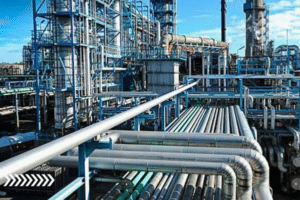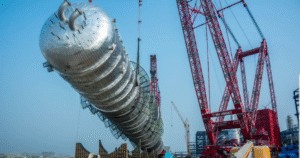Nigeria: Energy Consortium Secures $50 Billion for a 2nd Mega Petroleum Refinery Project, located in Ondo State
Petroleum RefineryNew investment promises jobs, industrial revival, market competition and renewed debates over environment/governance
An international energy consortium has secured a record $50 billion to build what will become Africa’s second-largest oil refinery in Ondo State, Nigeria. The project, a major vote of confidence in the country’s energy sector, is expected to reshape Nigeria’s industrial landscape, reduce dependence on imported fuel, and create thousands of jobs.
Away from its economic weight, the project carries profound social and political implications. The residents in Ondo and neighboring states, will benefit steady employment and new opportunities from the refinery, promising a region that had been long overlooked by major industrial investments. Local businesses such as logistics, catering, basic daily supplies, etc., are likely to benefit from the construction boom and supply-chain demand, potentially triggering a wave of promoting SMEs entrepreneurship, almost feathering crisscross the southwest from its central.

The refinery could accelerate urbanization in the host communities, attracting a new mix of workers, diverse cultures and lifestyles. Yet, this growth also raises concerns about displacement, land ownership disputes and the strain on traditional livelihoods such as fishing and farming. Environmental advocates have warned that without strict regulation, the project could threaten fragile ecosystems along the state’s coastline. While on the political front, the refinery could become a centerpiece of Nigeria’s broader energy reform agenda, testing the federal government’s ability to balance industrial ambition with environmental responsibility. It also marks a new chapter in regional competition, positioning Ondo State as a rising economic hub alongside Lagos and the Niger Delta states.
At the business level, analysts see the consortium’s investment is a strong signal of international confidence in Nigeria’s refining market, especially as global investors shift attention to Africa’s energy independence. The project’s success could reduce Nigeria’s costly reliance on imported refined fuel and strengthen its role as a continental supplier.

Ultimately, the $50 billion refinery represents an infrastructure that will boost the Nigeria’s future. In the thought sphere of communities on the ground, the true impact of the refinery will be measured in lives changed, families sustained and how equitably the wealth it generates is shared, farther than just in barrels refined.






